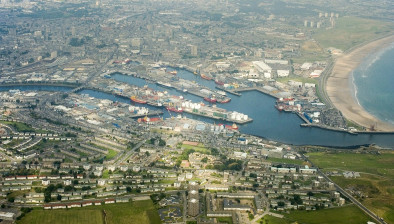Neil Clapperton: Our Power – a eulogy
Neil Clapperton, CEO of Grampian Housing Association, reflects on the collapse of Our Power, the housing association-backed energy provider.

Neil Clapperton
Our Power was an amazing creature, a utility with a heart, an energy supplier that cared for those on the margins, households in fuel poverty. It was the brain child of social entrepreneurs, who saw that the energy market did not serve the needs of customers well, and sought out a consortium of housing associations willing to take the plunge. I was proud that Grampian Housing Association stepped up.
Its demise is hard for me and I was only a cheerleader. I can only guess what it must feel like for the managers, staff and board members who did the heavy lifting. My heart goes out to them.
But I don’t want this to be an exercise in handwringing. Starting a new business is one of the most challenging, creative and scary things a human can do. It calls on all the strengths you have, and some you didn’t know you had, whilst laying bare any weaknesses. Start-ups demand total commitment, adrenaline, persistence, and above all courage. Right to the end.
Our Power is just the sort of social enterprise housing associations and local government should aspire to create, and the Scottish Government and a range of other investors showed great courage in supporting it. Kudos to all.
Despite its youth and premature end, we proved the concept and had an operating model that should have succeeded. It was a unique social enterprise trying to make the whole supply chain work for those in need. It saved fuel poor customers £3 million over two years. It innovated and challenged the SSE and Scottish Power off-peak tariff duopoly in Scotland. The social landlord voids business model it pioneered created a new market, with 70 landlords across the UK. It was smart by design, and the innovation partnerships it developed will still play a life changing role in the future of energy.
So why did it fail and what can we learn? There were internal and external challenges, small and large. As an old leftie it sounds strange coming from my lips, but the UK Government’s caps and other restrictions in the energy market turned out to be counter-productive, punishing the start-ups and niche players and shoring up the big six, because they have millions of sticky customers to take the strain. Either you nationalise the energy system or you don’t.
For two years the high customer care aspirations of Our Power suffered from an IT system that couldn’t deliver, and that cost the business dearly, in cash and confidence. Getting the customer management system right is never simple, and it takes time. Unfortunately a start-up doesn’t have that luxury. The cruel, cruel irony is that the system had been replaced in 2018, things were starting to click into place, and you could feel a renewed sense of optimism and re-connection with purpose.
The energy sector burns through working capital furiously, and ultimately that’s the light that went out. There had been a number of close calls but as with the new IT system, we thought it had turned a corner, helped by sympathetic investors. With only one more fund raise before the business turned around, market volatility demolished all the careful planning and passion. In the energy sector you need very deep pockets.
My personal message to the Scottish Government is to be brave again. The energy system is a matter reserved to Westminster so you cannot nationalise it, but climate change and the stupid levels of fuel poverty in Scotland demand something transformational. Forget caps and other tinkering, it needs to be about the supply chain, from generation to retail consumption, and all points in between.
Our Power had all of this on its to-do list and much had already been done, so stand on the shoulders of giants and support the innovation Our Power and its partners started around smart grids, demand management and aggregation. Through this I believe social landlords can reduce the cost of electricity to the point where gas is no longer a necessity for affordable warmth, and with that deliver a paradigm shift in our struggle with climate change.
- Neil Clapperton is CEO of Grampian Housing Association. This article first appeared on CommonSpace.







